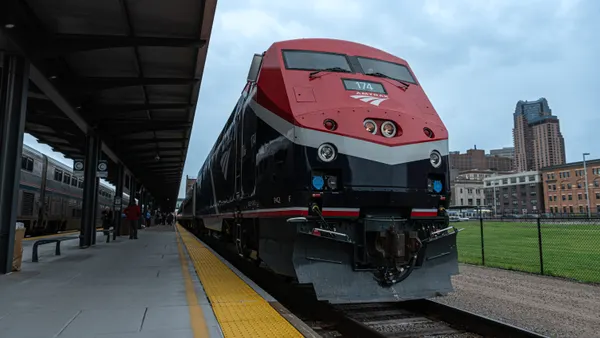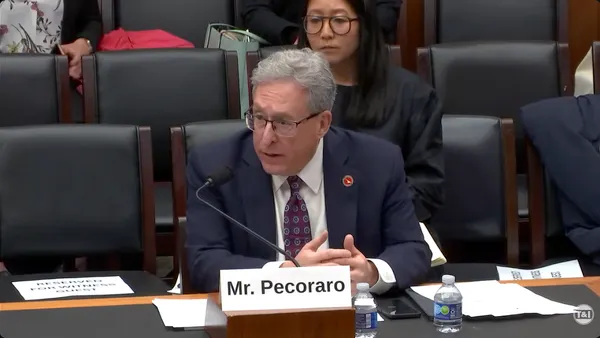Dive Brief:
- Electrify America, a subsidiary of Volkswagen (VW), will invest $44 million on several electric vehicle (EV) projects in Sacramento, CA, including a car sharing network. The funds come from VW’s settlement of charges from its emissions cheating scandal.
- Between $15 million and $18 million will support electric car-sharing projects, including a 260-vehicle free float network from GIG Car Share. The funds will also support a 142-vehicle fleet from Envoy Technologies based at apartment buildings, meant to primarily serve disadvantaged communities.
- Another $11 million to $14 million will support an electric bus route and an on-demand shuttle service in the city’s Franklin region. Electrify America will also install at least 10 fast charging stations around the city through the investment.
Dive Insight:
Electrify America has pledged to invest $800 million in California over 10 years, but chose Sacramento as its debut "green city," a site for programs targeted at increasing electric vehicle awareness and access, especially to low-income and disadvantaged communities. Richard Steinberg, Electrify America’s senior director of green cities, said Sacramento was a "strong, innovative and creative partner."
Sacramento, for its part, wants to be a national testing ground for electric and autonomous vehicle technology. An EV plan passed in late 2017 calls for 75,000 ZEVs in the city by 2025, and for it to become "the ZEV Capital of California," with special attention to car sharing and access to all communities. Statewide, Gov. Jerry Brown, D, set a goal to deploy 5 million electric cars by 2030 and to fully electrify the state’s vehicles by 2050 (a report from NEXT 10 says the state is on pace to meet its goal of 1.5 million ZEVs by 2025, but that charging infrastructure lags behind car sales).
While tax incentives and state-backed education initiatives will boost deployment, projects like those funded by Electrify America will help diversify the options available and support government-backed efforts. Cost remains a major barrier for many consumers to purchase their own electric car; a car sharing network will not only put more EVs on the road, but will give a zero-emissions option for the growing market of car-free consumers. Cities are also increasingly looking to electrify their bus fleets and other transit vehicles, like shuttles, although the technology still needs to be fully tested around the country, meaning the investment could pay off by showing the viability of ZEV bus routes.
The Volkswagen settlement is expected to be a boon for electric vehicle infrastructure around the country. It included $2 billion for Electrify America and another $2.7 billion for an Environmental Mitigation Trust, which states can use for projects to reduce transportation emissions. Stateline reports that many states have already laid plans for their shares, including deployment of EV chargers, electric buses, overhauling city vehicle fleets and subsidies for diesel owners to replace their engines.











